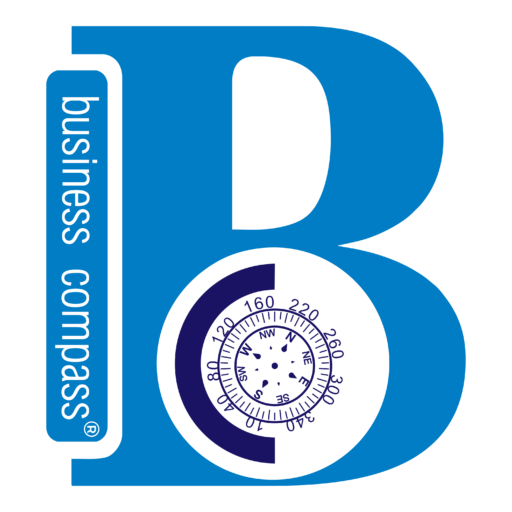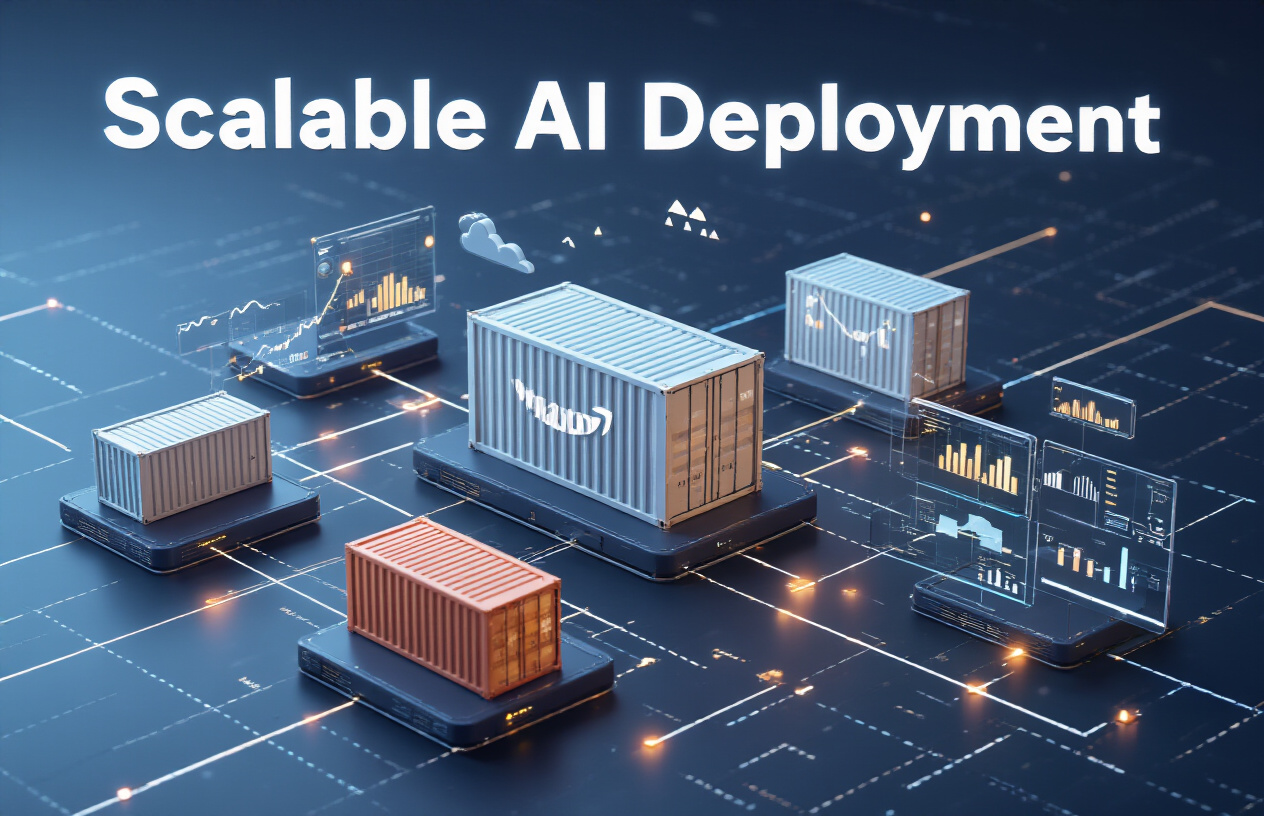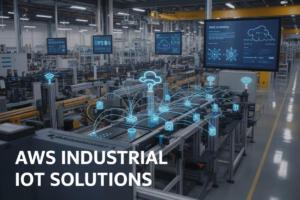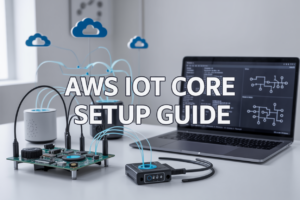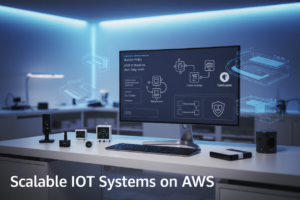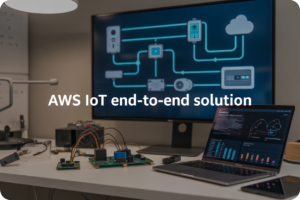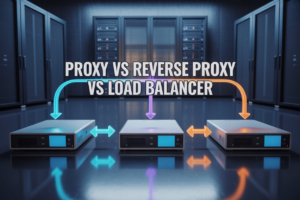Property management is getting a major upgrade thanks to AI property management and predictive maintenance technology. Instead of waiting for equipment to break down and dealing with expensive emergency repairs, smart property managers now use predictive analytics real estate tools to spot problems before they happen.
This guide is for property managers, building owners, and real estate professionals who want to cut maintenance costs, keep tenants happy, and boost their property management ROI. Whether you’re managing a single building or an entire portfolio, understanding how predictive maintenance works can transform your operations.
We’ll explore how AI-powered systems monitor your building’s equipment 24/7, catching early warning signs that human inspections might miss. You’ll discover which critical systems benefit most from predictive maintenance – from HVAC units to elevators and plumbing systems. We’ll also break down the real numbers behind maintenance cost reduction and show you practical implementation strategies that won’t overwhelm your team or budget.
Smart building technology and IoT property management aren’t just buzzwords anymore – they’re essential tools for staying competitive and keeping tenants satisfied in today’s market.
Understanding AI-Powered Predictive Maintenance Systems
Core Technologies Behind Predictive Analytics
AI-powered predictive maintenance relies on three foundational technologies: Internet of Things (IoT) sensors, cloud computing infrastructure, and advanced machine learning algorithms. IoT sensors continuously monitor equipment performance metrics like temperature, vibration, and energy consumption. Cloud platforms process this massive data stream, while machine learning models identify patterns that signal potential failures. This smart building technology stack enables property managers to shift from reactive repairs to proactive maintenance strategies, dramatically reducing unexpected equipment downtime.
Real-Time Data Collection Methods
Modern predictive maintenance systems deploy wireless sensor networks throughout properties to capture real-time equipment data. Temperature sensors monitor HVAC systems, vibration detectors track elevator performance, and smart meters measure energy usage patterns across building systems. These IoT property management sensors transmit data continuously to centralized platforms, creating comprehensive digital twins of physical assets. Property maintenance software aggregates this information, providing facility managers with instant visibility into equipment health across their entire portfolio.
Machine Learning Algorithms for Equipment Analysis
Predictive analytics real estate applications use sophisticated algorithms including random forests, neural networks, and time series analysis to process equipment data. These models learn normal operating patterns for each piece of equipment, establishing baseline performance metrics. When sensors detect deviations from these patterns, algorithms calculate failure probability scores and recommend maintenance actions. Machine learning continuously refines these predictions by analyzing historical failure data, weather patterns, and usage cycles, improving accuracy over time and maximizing maintenance cost reduction opportunities.
Integration with Existing Property Management Software
Modern AI property management solutions seamlessly integrate with existing property management platforms through APIs and cloud-based architectures. This integration allows predictive maintenance alerts to flow directly into work order systems, automatically scheduling repairs and notifying maintenance teams. The unified dashboard displays equipment health alongside tenant communications, lease management, and financial reporting. This comprehensive approach ensures property management ROI by streamlining operations and preventing costly emergency repairs that could impact tenant retention strategies.
Critical Equipment and Systems Requiring Predictive Maintenance
HVAC System Monitoring and Optimization
Smart building technology transforms HVAC maintenance through continuous monitoring of temperature sensors, energy consumption patterns, and equipment performance metrics. AI property management systems detect early warning signs like unusual vibrations, temperature fluctuations, or declining efficiency rates before major breakdowns occur. Predictive analytics real estate applications analyze historical data to schedule maintenance during optimal periods, reducing emergency repairs by up to 40% while extending equipment lifespan significantly.
Plumbing and Water System Prevention
Water damage prevention becomes proactive with IoT property management sensors monitoring pipe pressure, flow rates, and leak detection throughout buildings. Property maintenance software tracks water usage patterns to identify potential issues like slow leaks, pipe corrosion, or blockages before they escalate into costly emergencies. Building equipment monitoring systems alert managers to abnormal water pressure changes, enabling quick interventions that prevent extensive property damage and preserve tenant satisfaction.
Electrical Infrastructure Management
Electrical system failures pose serious safety and operational risks that predictive maintenance addresses through continuous power monitoring and circuit analysis. Advanced sensors track electrical loads, voltage fluctuations, and component temperatures to predict failures before they impact tenants. Maintenance cost reduction occurs when property managers receive alerts about overloaded circuits, aging transformers, or deteriorating wiring, allowing scheduled repairs instead of emergency responses that disrupt operations.
Building Security System Maintenance
Security infrastructure requires consistent performance to protect properties and maintain tenant confidence in their safety. Predictive maintenance monitors camera functionality, access control systems, alarm sensors, and communication networks to prevent security gaps. Property management ROI improves when security systems operate reliably without unexpected failures that could compromise building safety or require expensive emergency repairs during critical situations.
Cost Savings and ROI Through Predictive Maintenance
Eliminating Emergency Repair Expenses
Emergency repairs drain property budgets faster than any other maintenance expense. AI property management systems predict equipment failures weeks or months before they happen, allowing property managers to schedule repairs during regular business hours at standard labor rates. This predictive maintenance approach eliminates costly after-hours service calls, weekend premiums, and rush delivery fees that can inflate repair costs by 200-300%.
Extending Equipment Lifespan and Performance
Smart building technology monitors equipment performance in real-time, identifying when systems operate outside optimal parameters. This continuous monitoring prevents minor issues from becoming major failures that shorten equipment life. HVAC systems maintained through predictive analytics real estate solutions typically last 15-20% longer than traditionally maintained units, while maintaining peak efficiency throughout their extended lifespan.
Reducing Energy Consumption and Utility Costs
IoT property management sensors track energy consumption patterns and identify inefficiencies before they impact utility bills. Property maintenance software detects when filters need cleaning, refrigerant levels drop, or mechanical components lose efficiency. Buildings using predictive maintenance report 10-30% reductions in energy costs as systems operate at optimal performance levels, delivering significant property management ROI through lower operational expenses.
Tenant Satisfaction and Retention Benefits
Minimizing Unexpected Service Disruptions
AI-powered predictive maintenance transforms tenant experiences by catching equipment failures before they happen. Smart sensors monitor HVAC systems, elevators, and plumbing around the clock, alerting property managers when components show early warning signs. This proactive approach prevents sudden breakdowns that leave tenants without heat, air conditioning, or elevator access. Residents appreciate consistent service availability, leading to fewer emergency calls and complaints. Property management software with predictive analytics ensures maintenance teams address issues during convenient hours rather than responding to crisis situations that disrupt daily routines.
Maintaining Optimal Living Conditions
IoT property management systems continuously track environmental conditions like temperature, humidity, and air quality throughout buildings. Predictive analytics real estate platforms identify patterns that could affect comfort levels before tenants notice problems. Smart building technology automatically adjusts systems to maintain ideal conditions, preventing issues like mold growth, temperature fluctuations, or poor ventilation. This consistent environmental control creates healthier living spaces that residents value. Building equipment monitoring ensures all systems work together efficiently, delivering the comfort standards modern tenants expect without interruption.
Demonstrating Proactive Property Management
Tenants recognize when property managers invest in advanced maintenance technologies rather than waiting for things to break. Predictive maintenance showcases forward-thinking management that prioritizes resident wellbeing and property value. Regular communication about preventive measures builds trust and demonstrates professionalism. Tenant retention strategies benefit significantly when residents see management actively preventing problems instead of just reacting to them. Properties using AI property management systems often experience higher renewal rates because tenants appreciate the reliability and peace of mind that comes with proactive maintenance approaches.
Implementation Strategies for Property Managers
Selecting the Right AI Maintenance Platform
Property managers need to evaluate platforms based on integration capabilities with existing building systems, scalability for portfolio growth, and compatibility with IoT sensors already installed. Smart building technology platforms should offer comprehensive dashboards, predictive analytics real estate features, and seamless data flow from HVAC, electrical, and plumbing systems. Look for providers offering dedicated support, regular software updates, and proven track records in property management ROI improvements.
Staff Training and Change Management
Successful adoption of AI property management systems requires comprehensive training programs that address both technical skills and mindset shifts. Maintenance teams need hands-on experience with predictive maintenance software interfaces, while property managers must understand how to interpret analytics dashboards and make data-driven decisions. Regular training sessions, clear communication about benefits, and gradual responsibility increases help staff embrace new workflows and reduce resistance to technological changes.
Phased Rollout and Testing Procedures
Start implementation with a pilot building or specific equipment category to minimize risk and gather valuable insights. Focus initial deployment on critical systems like HVAC or elevators where building equipment monitoring delivers immediate value. Test data accuracy, alert systems, and maintenance scheduling features extensively before expanding to additional properties. This approach allows teams to refine processes, identify potential issues, and build confidence in the predictive maintenance system’s reliability.
Establishing Key Performance Indicators
Track metrics that directly impact property management operations and tenant satisfaction levels. Key indicators include maintenance cost reduction percentages, equipment downtime hours, emergency repair frequency, and tenant retention strategies effectiveness. Monitor response times to predictive alerts, accuracy of failure predictions, and overall maintenance budget variance. Regular KPI reviews help property managers demonstrate ROI to stakeholders while identifying areas for system optimization and process improvements.
Data Security and Privacy Considerations
Protecting Sensitive Building Information
AI property management systems collect massive amounts of sensitive data, from tenant access patterns to building security codes and financial records. Property managers must implement robust encryption protocols and multi-factor authentication to safeguard this information. Smart building technology generates detailed occupancy data, equipment performance metrics, and maintenance schedules that could expose vulnerabilities if compromised. Regular security audits and employee training programs help prevent data breaches that could damage tenant trust and expose properties to liability risks.
Compliance with Property Data Regulations
Property management companies face strict compliance requirements under GDPR, CCPA, and local privacy laws when deploying predictive analytics real estate solutions. These regulations mandate clear data collection policies, tenant consent procedures, and data retention limits. IoT property management systems must include privacy-by-design features that automatically anonymize personal information while maintaining operational effectiveness. Failure to comply can result in hefty fines, legal challenges, and reputational damage that far outweigh the maintenance cost reduction benefits of AI implementation.
Secure Cloud Storage Solutions
Modern predictive maintenance platforms rely on secure cloud infrastructure to process building equipment monitoring data in real-time. Property managers should prioritize vendors offering end-to-end encryption, regular penetration testing, and SOC 2 Type II compliance certifications. Cloud storage solutions must include automated backup systems, disaster recovery protocols, and geographically distributed data centers to ensure business continuity. The right property maintenance software provider will offer granular access controls, allowing managers to limit data visibility based on employee roles and responsibilities while maintaining system functionality.
Property managers who embrace AI-powered predictive maintenance are setting themselves up for significant competitive advantages. The technology transforms how we monitor HVAC systems, elevators, plumbing, and electrical equipment, catching problems before they become expensive emergencies. Smart sensors and machine learning algorithms work together to analyze patterns, predict failures, and schedule maintenance at the optimal time. This approach cuts maintenance costs by 20-30% while extending equipment lifespan and keeping tenants happy with fewer disruptions.
The path to successful implementation starts with identifying your most critical systems and choosing the right technology partners. Focus on data security from day one, ensuring tenant privacy while collecting the information needed to make accurate predictions. Property managers who start small with pilot programs and gradually expand their predictive maintenance systems see the best results. The future belongs to properties that can anticipate problems rather than react to them, creating better experiences for tenants while protecting the bottom line.
